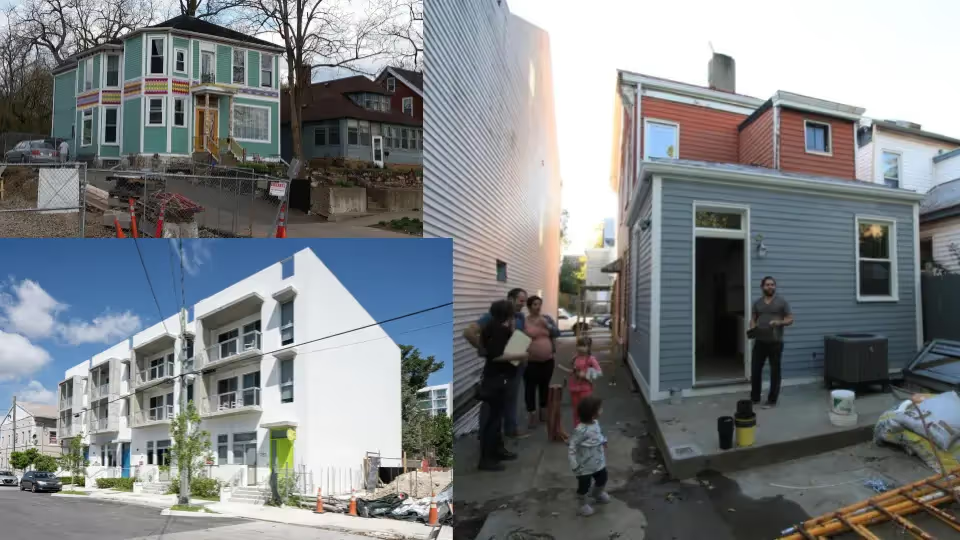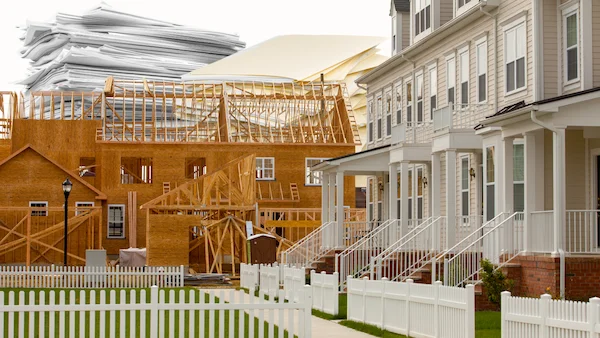Everything’s bigger in Texas—but what if you just want a modest, affordable home? Lawmakers are now considering that very question.
Senate Bill 15, now moving through the Texas legislature, would require cities to allow residential lots as small as 3,000 square feet. On its face, 3,000 square feet might not sound particularly small. But in a state where minimum lot sizes of 5,000 or even 7,000 square feet are common, this represents a meaningful shift—and a rare statewide challenge to the regulatory defaults that have favored large-lot development for decades.
The bill would also prohibit cities from requiring more than one off-street parking space per home—a potentially transformative shift in a state where local ordinances have long mandated garages and multiple off-street space, seven for modest homes and households without vehicles. It would also restrict setbacks to no more than 15 feet in front, 10 feet in back, and 5 feet on each side for smaller lots. That means less land wasted on buffers and driveways, and more room for places where people want to spend time and make memories.
While some critics have decried the bill as a top-down imposition on local land use authority, others see it as a rare and necessary correction to exclusionary zoning practices that have helped drive up home prices in cities across Texas. As The Builders Daily notes, the bill creates few loopholes: cities would have little room to wiggle out of the requirements. In essence, it forces the legal framework to catch up with what many Texas residents already know—that the current rules are making it too hard to build attainable housing.
The Big Win

Among the bill’s most significant features is the relaxation of parking mandates. Small-lot homes would no longer be required to provide covered parking like garages, and municipalities could only require a maximum of one parking space per unit.
This provision matters. Parking mandates not only raise the cost of homebuilding, but also eat up valuable land, distort urban form, and limit the feasibility of smaller-scale infill projects. In states like Texas, rolling back parking requirements has often been politically untouchable. So while this latest move may not grab headlines, the fact that this bill directly challenges parking minimums is no small thing.
For decades, Texas zoning codes have steered development toward large lots and large homes, leaving few legal pathways for builders to offer modest, starter-sized housing. The result? A growing affordability crisis not just in Austin and Dallas, but in suburbs and smaller cities across the state.
By legalizing small lots, Senate Bill 15 opens the door for more housing types to emerge—bungalows, cottage courts, townhomes, and other forms that used to be common in American cities before zoning codes made them illegal. Just as importantly, it offers a blueprint other states can follow, especially those wrestling with how to balance housing needs and local control. To some, it may be a watered-down version of earlier, more ambitious proposals, it still marks an important win.
What Other Cities Can Learn
While Texas is headed in the right direction, your community doesn’t have to wait for state-level mandates to get serious about zoning reform.
Our Housing-Ready City Toolkit offers practical steps any community can take to unlock missing middle housing, rethink parking requirements, and support modest development that fits within the context of existing neighborhoods.




.webp)
.webp)